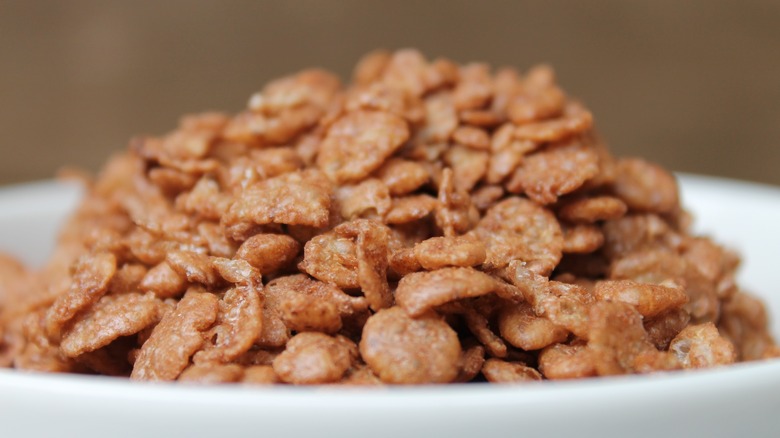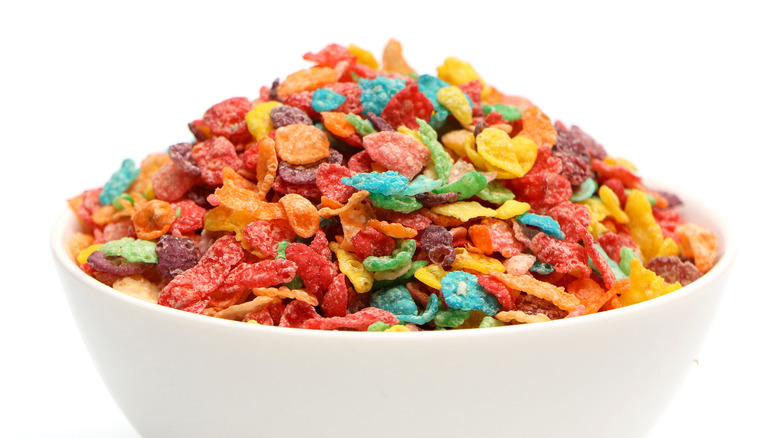The Reason Some American Cereal Has To Be Smuggled Into Canada
Plenty of foods have made the United States' no-fly list: German Kinder Surprise Eggs, raw milk, absinthe, Cadbury chocolate, bird's nest soup. While some foods are denied entry due to the risk of spreading bacteria or disease, others are denied entry due to their manufacturing process or label.
Different countries have different regulations, so a food item might be allowed in one country, but not in a neighboring country. This obviously isn't too unfamiliar a concept, as around 5,000 food items are confiscated by U.S. Customs agents on a daily basis, according to the New York Post. The point is Americans are no stranger to the idea of black market foods (French cheese, anyone?). However, what many of us fail to realize is the sheer number of American foods that are banned in other countries. As it turns out, Canada prohibits a good deal of American products, and some of them are brands of cereal.
American cereal hits the black market
Believe it or not, many kinds of cereal we know and love in the U.S. are not available in Canada. Cocoa Pebbles, Cookie Crisp, Fruity Pebbles, and countless others can only enter Canada via smugglers.
According to Yahoo Finance, the biggest reason you can't buy Count Chocula in Canada is the difference in regulations for vitamin and mineral fortification. American cereals contain amounts of fortified vitamins at a much higher level than what is permitted in Canada. Another factor keeping American cereals off Canadian shelves is the labels on the boxes. While the U.S. uses the imperial measuring system, Canada uses the metric system. This means the labels have to be reformulated, and not all companies are willing to pay for that.
So yes, Canadians will pay double or triple to get their mittened hands on a box of Franken Berry, and honestly, we can't blame them.

